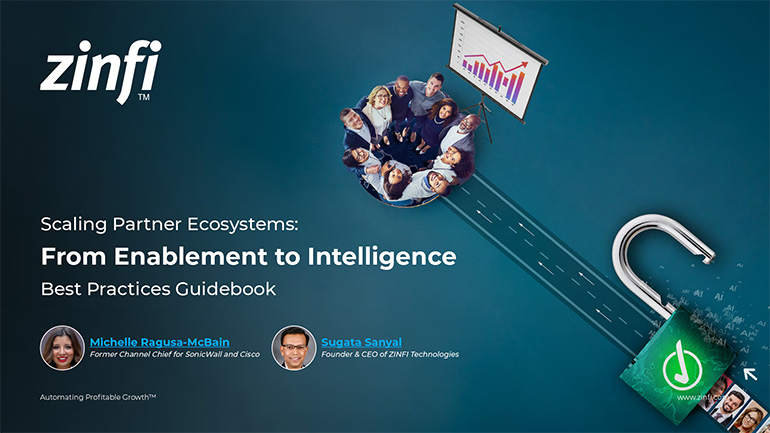Glossary - What is - Recurring
What is Recurring?
A recurring refers to something that happens repeatedly or at regular intervals. In the business context, recurring often describes transactions or events that occur on a scheduled basis, such as monthly subscriptions, weekly meetings, or quarterly maintenance. These recurring elements ensure consistency, predictability, and steady revenue streams.
Recurring processes are vital to partner ecosystem management and partner management automation. They streamline operations, enhance efficiency, and foster stronger relationships between partners. Automated recurring tasks, such as regular communications, updates, and billing, reduce manual effort and errors, ensuring that partners remain engaged and well-informed. Organizations can maintain a seamless workflow by leveraging automation to scale their partner ecosystem effectively and efficiently.
Key Takeaways:
- Enhanced Efficiency through Automation: Automating recurring tasks in partner management significantly enhances operational efficiency. Organizations can reduce manual workloads and minimize errors by scheduling regular updates, communications, and billing cycles. Automation ensures these tasks are performed consistently and accurately, freeing resources for more strategic activities.
- Improved Partner Engagement: Recurring communications and updates keep partners informed and engaged. Regular newsletters, performance reports, and training sessions ensure partners are constantly updated with the latest information and developments. This consistent engagement builds stronger relationships and promotes loyalty. Learn about Partner Engagement.
- Predictable Revenue Streams: Implementing recurring billing and subscription models provides businesses with predictable and stable revenue streams. This predictability helps in financial planning and forecasting. For instance, subscription-based services or products ensure a steady cash flow, which is crucial for long-term sustainability.
- Scalability of Partner Programs: Recurring processes enable the scalability of partner programs. As the number of partners grows, automated recurring tasks ensure that each partner receives consistent support and resources. This scalability is essential for expanding the partner ecosystem without overwhelming the internal team.
- Consistency in Service Delivery: Recurring tasks ensure consistency in service delivery, which is crucial for maintaining partner satisfaction. Regularly scheduled maintenance, updates, and support services help meet partner expectations consistently. Consistency fosters trust and reliability, essential components of a successful partnership.
Summary of Key Takeaways:
Automating recurring tasks enhances efficiency, improves partner engagement, and provides predictable revenue streams. It also allows for the scalability of partner programs and ensures consistency in service delivery. Organizations can build stronger, more reliable partnerships and drive sustainable growth by leveraging automation.
Key Examples:
- Automotive Manufacturing: Recurring maintenance and supply chain processes are crucial in the automotive industry. For example, regular maintenance schedules for machinery ensure operational efficiency and minimize downtime. Recurring orders for parts and materials keep the production line running smoothly. Automated systems help manage these recurring tasks, ensuring timely execution and consistency.
- Consumer Electronics: Companies benefit from recurring software updates and customer support services. Regular updates ensure devices function optimally and stay secure. Recurring customer support engagements, such as monthly check-ins or annual service packages, enhance customer satisfaction and loyalty.
- Energy Production: Recurring equipment inspections and maintenance are vital for safety and efficiency in energy production. Automated scheduling of these recurring tasks ensures compliance with safety standards and minimizes the risk of equipment failure, which can lead to costly downtime and safety hazards.
- Financial Services: Financial services rely heavily on recurring transactions, such as monthly billing cycles, account statements, and interest calculations. Automating these recurring tasks improves accuracy and efficiency, reducing the risk of errors and ensuring timely service delivery to clients.
- Food and Beverage: The food and beverage industry depends on recurring supply orders and quality checks. Regular stock replenishment and periodic quality inspections ensure that products meet safety standards and customer expectations. Automation helps manage these recurring tasks, ensuring they are done consistently and on time.
- Healthcare Services: Healthcare providers benefit from recurring patient appointments, follow-up visits, and regular billing cycles. Automated scheduling and reminder systems improve patient adherence to treatment plans and ensure timely revenue collection for services rendered.
- Information Technology: IT companies rely on recurring software updates, security patches, and client communications. Regular updates and maintenance schedules ensure systems are secure and perform optimally. Automated recurring tasks help manage these processes efficiently, reducing downtime and enhancing client satisfaction.
- Pharmaceutical Development: Recurring tasks such as clinical trial follow-ups, supply chain management, and regulatory compliance checks are crucial in pharmaceutical development. Automation ensures these recurring processes are handled consistently, helping maintain compliance and streamline development timelines.
- Retail Industry: Retail businesses benefit from recurring inventory checks, restocking, and customer engagement activities. Automated systems manage these recurring tasks, ensuring optimal inventory levels and customers receiving timely updates and promotions.
- Telecommunications: Companies rely on recurring billing cycles, customer support follow-ups, and network maintenance. Automating these recurring tasks improves service delivery, enhances customer satisfaction, and ensures network reliability.
Conclusion:
Recurring tasks and processes are essential across various industries, providing consistency, efficiency, and predictability. In partner ecosystem management and automation, recurring processes are crucial in maintaining strong partner relationships, ensuring operational efficiency, and enabling scalability. By automating recurring tasks, businesses can improve efficiency, enhance engagement, achieve predictable revenue streams, scale their programs, and ensure consistent service delivery. Download the guidebook to learn more about the partner ecosystem.
Across industries, from automotive manufacturing to telecommunications, recurring processes streamline operations and support growth. For example, maintenance schedules in automotive manufacturing prevent downtime, while recurring software updates in consumer electronics ensure optimal device performance. Automated patient appointment reminders improve treatment plan adherence; automated inventory checks ensure optimal stock levels in retail.
Overall, the importance of recurring processes cannot be overstated. Businesses can handle these tasks more efficiently by leveraging automation, allowing them to focus on strategic initiatives and build stronger, more reliable partnerships.
Associated Keywords:















